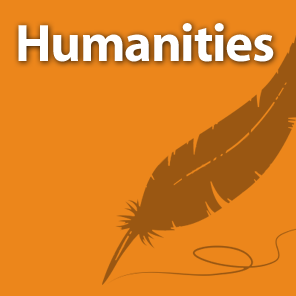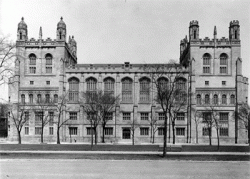
“If I don’t succeed in academe, I’ll die!” So read the anguished headline of a Jan. 23 cri de coeur to Salon magazine’s advice columnist, Cary Tennis. The writer was a woman who had apparently spent eight years acquiring a Ph.D. in anthropology, plus another seven years trying unsuccessfully to get an entry-level tenure-track professor’s […]
Read More
One of my professors in college defined an anthropologist as “a sociologist in a tent.” His comment was not a compliment — he was a sociologist — but it was true in ways that he did not have in mind. Anthropology has always been a big tent, including as it does what one anthropologist calls […]
Read More
College foreign language and literature programs have been in decline for some time, first shrinking, then being consolidated with other departments, and now in a growing number of cases actually closed down. But the recent decision to eliminate French, Italian, Russian and Classics at SUNY Albany appears to have struck a nerve, and caused an […]
Read More
The news circulating among humanities professors across the country is the decision by SUNY-Albany to close programs in Classics, French, Italian, Russian, and Theatre. (Judaic Studies, too, has been virtually eliminated and journalism will be cut in half.) The general dismay is palpable, but faculty members should prepare for more of the same in the […]
Read More
The National Research Council has finally issued its rankings of doctoral programs, with coverage appearing here, here, and here . Right now, everybody is trying to assimilate the results, which are more complicated than those in the 1995 report. The “Data-Based Assessment” runs to 282 pages, the “Guide to the Methodology” 57 pages, and each […]
Read More
President Botstein’s portrait of Bard College’s summer reading assignments in the context of the college’s curriculum and larger educational aims is winsome and compelling. The college leads its students astutely into reading important books. It attends to the order in which such books should be read—Virgil before Dante. It is mindful of the need to […]
Read More
New Jersey’s Kean University is planning to institute a controversial new academic structure. The university has presented a draft proposal , its second, to replace the traditional arrangement of academic departments with schools headed by “executive directors” appointed by the president. Initiatives to eliminate such departments as philosophy and social work are already in the […]
Read More
With various co-authors, University of British Columbia Sociologist Neil Gross has made a cottage industry of downplaying charges that academia is politically correct. Seemingly, the left’s domination of social science and humanities departments is of no more concern than the fact, cited by Thomas Sowell, that in the 1990s, Cambodians ran 90 percent of California’s […]
Read More
On 19 April, the board of trustees of Shimer College in Chicago, by an 18 to 16 vote, ousted Dr. Thomas Lindsay from the presidency after little more than a year of service. For sixty years, tiny Shimer (about ten faculty and 100 students) has touted itself as a Great Books college on the Robert […]
Read More
In his recent essay, “Why the Great Books Aren’t the Answer,” Patrick Deneen is correct about many things. He is correct to criticize conservative supporters of great books like Allan Bloom and William Bennett who see them as a throwback to the “good old days” of liberal education. He is correct to point out the […]
Read More
For several decades, conservative critics of higher education have argued against trends toward the elimination of “core” curricula and with equal ferocity against their replacement by “distribution requirements” or even open curricula. They have, in particular, defended a curriculum in “Great Books,” those widely-recognized texts in the Western tradition authored by the likes of Plato, […]
Read More
Many critical observers of humanities education believe that various left-leaning trends such as multiculturalism and cultural relativism become stronger the higher you rise on the education ladder. In graduate school, the focus is relentless in one seminar after another, with students composing thousands of dissertations each year that presume group identity outlooks as a matter […]
Read More
When talking with prospective students who are thinking about attending college, I often engage in a bit of “bait and switch.” Many of them are interested in jobs that will come for them after college and so they look at what college is about in almost functional terms. “What job will I be able to […]
Read More
Given that it’s been 30 years since I left graduate studies in English Lit, I don’t spend much time reading up on the field. Still, when I saw the provocative headline, “The Big Lie About the ‘Life of the Mind,’” on a recent article in the Chronicle of Higher Education I knew immediately that this […]
Read More
Matthew Levinton, a student at the University of Texas at Austin, wrote us with some encouraging news about a new book club at that school, which he currently serves as President. Read his account: Last fall at the University of Texas at Austin, a new great books program began its mission to realize Thomas Jefferson’s […]
Read More
As the senior class of Yale College prepares for its final semester and reflects on the Bright College Years so swiftly gliding by, I have heard one phrase repeated with surprising frequency: “I wish I had done Directed Studies.” It’s a statement that doesn’t accord with the stereotype of Yale seniors as either careerists shaking […]
Read More
The University of Chicago met widespread national opposition ten years ago after it instituted a new, less demanding core curriculum to make way for more electives. It was part of a plan to make the curriculum significantly less demanding (more “fun”) to attract more students and improve the school’s bottom line. Instead of 21 required […]
Read More
Spend some time among humanities researchers and it won’t be long before you hear complaints about lack of support. They grumble that while the sciences have countless sources and billions of dollars pouring into their labs and clinics and field work, the humanities have NEH, a smattering of foundations giving fellowships, a handful of humanities […]
Read More
Part I, The Problem How is the university, specifically the humanities and social sciences, with its rampant anti-Americanism, anti-intellectualism, muddle-brained identity politics, hostility to the unvarnished truth and all the rest to be re-conquered and restored to sanity? As one who has spent four decades in the belly of the beast, half of which was […]
Read More
The American Council of Trustees and Alumni has released a trustee guide Restoring a Core as a follow-up to What Will They Learn, their recent survey of core curricula (more about that here) Take a look at the “How Will A Core Benefit My Institution” section beginning on page 4 for some interesting examples from […]
Read More
The American Council of Trustees and Alumni has unveiled a new site, www.whatwilltheylearn.com, that provides a survey of core curriculum requirements at 100 American Universities. They evaluate the existence of requirements in 7 areas: Composition, Literature, Foreign Language, U.S. Government or History, Economics, Mathematics, and Science. Suffice it to say that most colleges required don’t […]
Read More
In the Critical Theory Archives at UC-Irvine, deep in a file of the Stanley Fish Papers, is a statement on Duke University letterhead by Fish when he was Executive Director of Duke University Press. The statement isn’t dated, but we can assign it to the year 1996, appearing as it does in response to the […]
Read More
Last November, Rob Koons, director of the Program in Western Civilization and American Institutions at the University of Texas, was abruptly fired from that position. In swift succession, the name of the program and its leadership was changed to conform more closely to the ideological tastes of the faculty of the College of Liberal Arts. […]
Read More
The good news: A survey from the Association of American Colleges and Universities (AACU) announcing that “distribution requirements” in undergraduate education are out and “general education” is back. Translated, that means—or ought to mean—that colleges are reinstating the idea of a core curriculum of essential courses, conveying essential knowledge, that every well-rounded college graduate ought […]
Read More
On February 25, 2009, an article by Patricia Cohen appeared in the New York Times: “In Tough Times, the Humanities Must Justify Their Worth.” Its thesis was a familiar one: an economic downturn will lead to a decline in the number of college majors in the humanities because in hard times enrollments shift toward majors […]
Read More
There may be something to demand-side economics: According to the most recent annual report from the National Science Foundation, the number of Ph.D. degrees awarded in the humanities dropped by almost 5 percent from 2006 to 2007. As Inside Higher Education reported, the decline—steepest for doctorates in literary studies such as English, foreign languages, and […]
Read More
Fellow co-believers frequently ask me how I, a “notorious” conservative professor, have survived decades surrounded by loony lefties. My answer—it is not nearly as bad as it appears—usually causes surprise. Appearances are deceiving, I say, and even in the social sciences and the humanities, the left’s stronghold, the batty left’s domination is incomplete—the tip of […]
Read More
In every discussion of left-wing bias on college campuses, a good portion of faculty defenders come to the table with a blunt contention. There is NO bias, they insist. Sure, most humanities and social science faculty register Democrat, but it doesn’t much affect teaching, and besides, campuses have their fair share of conservatism and libertarianism […]
Read More
President Bush has nominated Robert Paquette, of the Alexander Hamilton Center (once nearly an institution at Hamilton College) to the National Council on the Humanities. All luck with his confirmation.
Read More
Overwhelming evidence attests to the liberal tilt on our college campuses. Studies show that the faculty at most mainstream institutions are overwhelmingly registered with the Democratic party and give a disproportionate share of their political donations to left-leaning candidates. A recent study of donations by faculty at Princeton University during the current Presidential election season […]
Read More